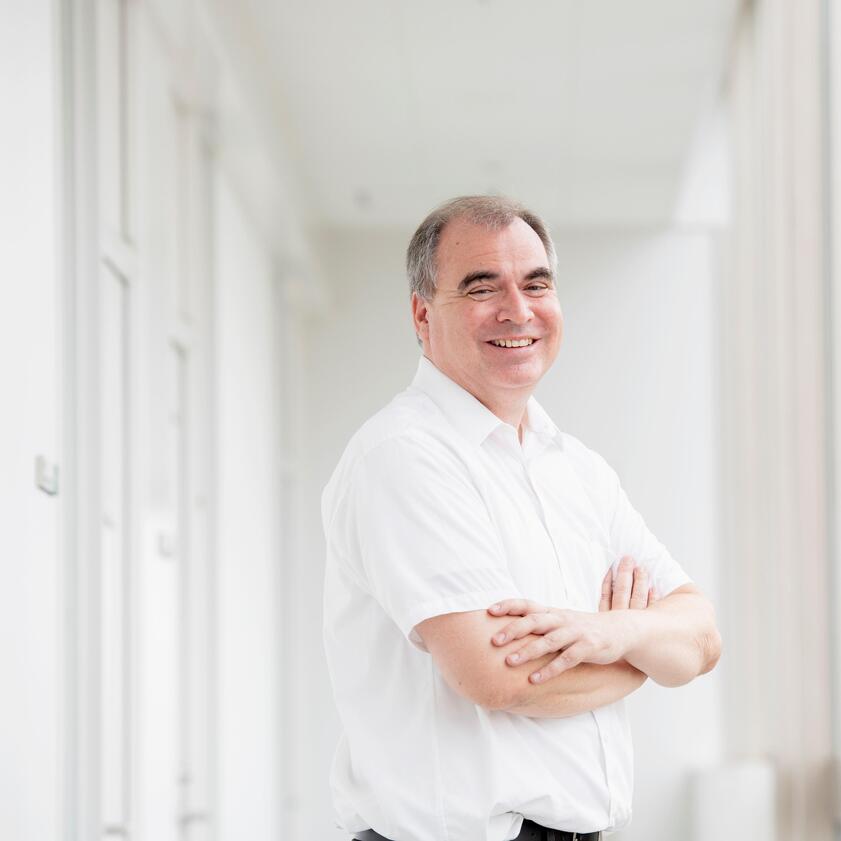Professor Ryuichiro Higashinaka

Researchers'
Designated Professor/Director
Matthew Linley
Department of International Programs, International Education & Exchange Center
It is a quote by the American writer John A. Shedd. While a comfortable life is important, we can learn a lot by seeking adventure. If you do not take the ship out to sea, it is impossible to grow. It can be stressful and risky to put yourself in an unfamiliar environment, but it will strengthen you.
My principal duties are recruiting and admissions for the G30 International Program (hereafter referred to as G30), which allows students to earn a degree in English. Together with the International Admissions Section of the Admissions Division, we welcome international students from all over the world. Competition for international students is fierce, both domestically and internationally. Universities worldwide are appealing for excellent international students, and Nagoya University cannot afford to lose them. Analyzing data on prospective students is also an important task. I also coordinate faculty, staff, and students to ensure the smooth operation of the G30 program.
There are three. The first rewarding activity is working with international students. Meeting bright students from across the world is fantastic. It is fun to explain the appeal of Nagoya University to high school students from different countries on business trips abroad. Second, I enjoy working with the G30 faculty members. Everyone has a different background, so I learn a lot about their academic interests and teaching styles. Third, I love working with Japanese students who are interested in studying abroad and improving their English skills. The G30 courses are open to Japanese students, and increasingly, more of them will learn specialized knowledge in English. I find it rewarding to help these students expand their horizons and improve their language skills.
In the G30 entrance exam, we conduct an interview besides a document review that considers a student’s high school GPA, global standardized test scores, and extracurricular activities. As a result, we admit many students who are not only academically excellent but also have good communication skills and motivated to learn. Through four years of education at Nagoya University and exposure to advanced research, students grow their abilities. Many of our G30 graduates have been accepted to graduate schools at Nagoya University and other universities ranked in the top 50 worldwide by the Times Higher Education. In addition, as mentioned, Japanese students can also take G30 courses, so they can enjoy a mini study abroad experience as if they were studying at a foreign university while still at Nagoya University.
G30 International Program students and faculty members at an event where seniors provide advice to incoming students about academic and social life in Nagoya (September 2019)
Overseas business trips are important for G30 student recruitment, but this year, I could not go on any business trips. Instead, we are using ICT to communicate with high schools overseas and take part in meetings. In addition, Japanese students can no longer study abroad, but we have adapted G30 classes to an online format, so it is a wonderful opportunity for them to take classes in English from home.
For me personally, I have been "staying home" to conduct meetings and classes online. I have a child in elementary school, and we have more opportunities to play and talk together than usual. However, I gained weight, so I took walks with my family or ran in the park during less crowded times.
I was in a techno-rock band in high school and university with five of my childhood friends from Canada. I played guitar and programmed the drum machine. We were good at copying the musical style of the band New Order from Manchester, and we sang with a deliberate British accent. However, we were not that popular. At our first concert, the crowd booed us and threw toilet paper. The experience of rejection, and damage to my confidence, made me the strong person I am today. Or at least that is what I tell myself (laughing). It is important to do what you like, regardless of what others think.
I once studied at Nagoya University as an international student. I enjoyed my student days, and it was a major turning point in my life. On the other hand, I always felt that there was a wall between international students and Japanese students. My dream is for Japanese and international students to study together in a single classroom, and for "internationalization" to become a normal part of everyday life at the university, not something special. I also want to improve the G30 program, to raise its profile globally, and to contribute more to Nagoya University.
At his desk
Name: Matthew Linley
Department: Department of International Programs, International Education & Exchange Center
Title: Designated Professor/Director
Career history and hobbies:
He was born in Port of Spain, Trinidad and Tobago. He immigrated to Canada at the age of three. After completing a master's degree in Political Science at the University of Victoria, he received a master's degree in Law from the Nagoya University Graduate School of Law as a government-sponsored student. He was also a researcher for three years at the Center for Asian Legal Exchange, Nagoya University. In 2009, he completed his PhD at the Crawford School of Public Policy at the Australian National University. During his PhD, he was also a Japan Foundation Fellowship student at the School of Political Science and Economics, Waseda University. After working at Temple University's Japan Campus, he took up his current position in 2014.
His hobby is aerobics.